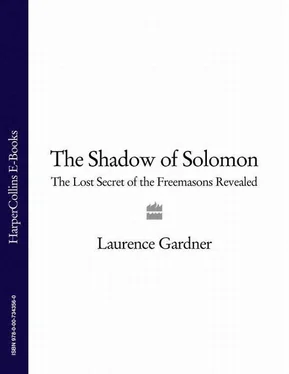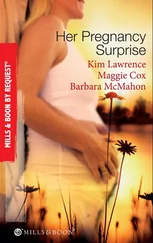In 1747, the estate house of Berse Drelincourt was built near Wrexham for Mary, the widow of Peter Drelincourt, Dean of Armagh, to become a masonic charity school for the residential education of children born to exiled Jacobite nobility. Technically, the school was registered as an orphanage and, for reasons of strict security, access was forbidden to outsiders. Lady Anne Primrose (Mary’s daughter) eventually became director of operations.
The style of Freemasonry worked within Tory lodges (such as the Sea Serjeants and the Cycle of the White Rose in the Welsh regions) was somewhat akin to that which led to the Antients’ Grand Lodge foundation in 1751, thereafter referring to the premier Grand Lodge as the Moderns. In 1760, Robert Jones of Glamorgan became Grand Master of the Welsh Freemasons, and was also a member of the One Ton lodge in Noble Street, London, along with the Black Lion lodge in Jockey Field. 17A close friend of the political activist John Wilkes, he also attended other Tory lodges in London at the Antwerp Tavern, the Turk’s Head and The Shakespeare. Prior to Jones’ appointment, the Carmarthen Grand Masters of the 1750s were Sir Edward Mansell of Trimsaran and David Gwynne of Talaris from 1754. (Plate 10 illustrates a summons of The Globe Lodge, Fleet Street, during this era.)
The following example of the scale of the inter-lodge hostility that prevailed at this time comes from the Transactions of the Antiquarian Society and from London’s Gentleman’s Magazine and Historical Review, 1755. Unable to infiltrate the Tory’s Red Lion lodge in Market Street, Carmarthen, at a time when borough elections were taking place, the Whigs instituted their own new lodge at the nearby Greyhound in Bridge Street. Arguments led to scuffles which, in turn, led to several injuries and the killing of the Red Lion barber, whereupon wholesale warfare erupted in the streets as reinforcements came in from out of town. The Tories occupied the castle, and the Whigs took the town hall. ‘In short’, wrote one correspondent, ‘the town is full of fire, smoke and tumult.’ 18Another report stated that people were ‘armed with guns, swords and other offensive weapons—threatening, assaulting, beating, knocking-down, wounding, maiming, shooting at and killing several’. 19After the disturbances had died down, the rival masonic lodges each began legal proceedings against the other.
This was the state of Britain’s Freemasonry in the 1740s and 1750s, at a time when the premier Grand Lodge lost 72 of its 271 member branches, yet the official records are remarkably quiet. William, 5th Lord Byron (great-uncle of the poet), was elected as Grand Master in 1747, and was never seen again in a masonic lodge until he nominated a successor in 1752. 20Subsequently, he caused public feeling to well up against Freemasonry when he killed his neighbour, William Chatworth, in a sword fight at the Star and Garter in London’s Pall Mall.
Even the individual member Freemasons whose lodges were tied to premier Grand Lodge were unhappy at this time, and they were especially angered when a Bill of Incorporation was presented to Parliament by their masters in 1768. By virtue of its terms, the feeling against the concept was intense, and members complained that it would constitute a legal way for the hierarchy to misappropriate their charity contributions for other purposes. At the outset, Horace Walpole, Earl of Oxford and son of Robert (the late Prime Minister), had written to a colleague, ‘The Free Masons are in such low repute now in England…I believe that nothing but a persecution could bring them into vogue again.’
In masonic circles, the most frequently given reason for the hostile 18th-century conflict between the Antients and the Moderns is that the Antients must have been Irish and unable to gain access to the English lodges—so they started their own! But the truth is far more straightforward than that. Whether English, Scots, Irish or Welsh, it was a party-political feud. The Antients were essentially Jacobite Tories, whereas the Moderns were mostly Hanoverian Whigs.
Prince Frederick predeceased his father in 1751 and, when George II died in 1760, he was succeeded by Frederick’s eldest son as King George III. Soon afterwards, following an induction meeting at the Horn Tavern in London, three of the new King’s brothers—the Dukes of Gloucester, York and Cumberland—were each given the spuri ous title of Past Grand Master by premier Grand Lodge. 21This ensured that the Royal Family was wholly attached to their branch of the Craft, while also giving the impression to outsiders that Grand Lodge had a more solid foundation than in reality. From that point, the scene was set for a masonic institution headed by Hanoverian royalty, as it remains today.
The American War of Independence (1775-83) was a major world event in masonic terms since George Washington, John Hancock, Benjamin Franklin and other Founding Fathers of the emergent new Republic were Freemasons. But how could these eminent men be attached to a fraternity that was so heavily influenced by the very royal house whose colonial authority they challenged?
This fascinating aspect of transatlantic history is more than worthy of its own section in this book, and it shall be examined in detail in chapter 17. Meanwhile, the point to hold in mind is that the Tory Ancients and the Whig Moderns were competitive, antagonistic, and supported wholly conflicting political viewpoints. There were two distinct and opposing forms of Freemasonry in the latter 1700s, and the relationship between America and the Tory faction was far stronger than any academic history book is ever likely to reveal.
In 1782, Prince Henry, Duke of Cumberland, was installed as overall Grand Master in London and, with this formal royal patronage, the masonic cause of the Moderns was considerably strengthened. Another prominent character of the moment, known as Thomas Dunkerley, was an illegitimate son of George II. Born in 1724, he served (from the age of 10) in the Royal Navy, and his royal birthright was not announced until he was over 40. Having been initiated into Freemasonry in 1754, Dunkerley formed lodges in many of the ships in which he served, and when his parentage was recognized he was granted a personal income and rooms at Hampton Court Palace. Subsequently, he became Provincial Grand Master in numerous regions. 22
The Duke of Cumberland died in 1790, whereupon his nephew, the Prince of Wales (later King George IV), took up the reins as Grand Master—at least nominally. In practice, he appointed a deputy to carry out the functions of the post.
In 1791, Dunkerley decided to introduce high degrees of a presumed Knight Templar style into English Freemasonry. He formed the Supreme Grand and Royal Conclave, inviting George III’s young son, Prince Edward (the later Duke of Kent), to be overall Patron of an Order that would assume control of the said high degrees. But Dunkerley died in 1795, and no one really knew what the Supreme Grand and Royal Conclave was. It seems to have been little more than Dunkerley himself, possibly with the aid of a friend’s sister, whom he referred to in correspondence as the Lady Patroness. There were, however, a number of regionally affiliated ‘encampments’ (lodges) whose members appointed Thomas Parkins, Lord Rancliffe, to succeed Dunkerley. But in all the 11 years of his appointment, Rancliffe only attended one meeting, 23which was one more than the Duke of Kent attended!
During this period, and following the French Revolution (1789-99), an innovatory concept of voting was put forward by the British author Thomas Paine in his The Rights of Man. He suggested that people should have the right to appoint and change their own governments. This was too much for the Georgian politicians—Paine was indicted for treason and fled to Calais in 1792. By that time, almost every town in Britain had a Constitutional Information Club, or a Society of Friends. In 1793, the British Convention of People’s Delegates was held in Edinburgh and, in response to their plea for better workers’ representation, the Government duly transported the leaders to the colonies. Hostilities were then commenced against the French who, along with the Americans, were said to have fuelled a widespread anti-Hanover mood in Britain.
Читать дальше












